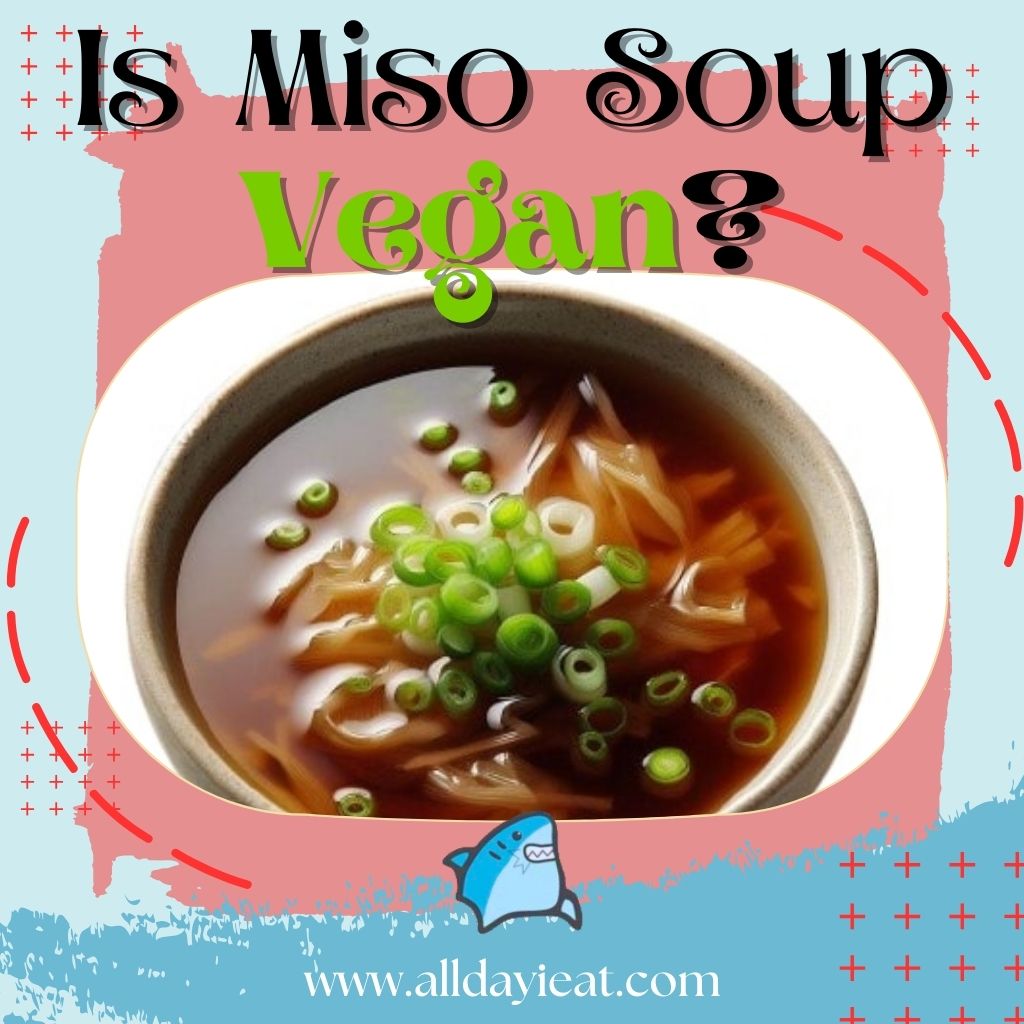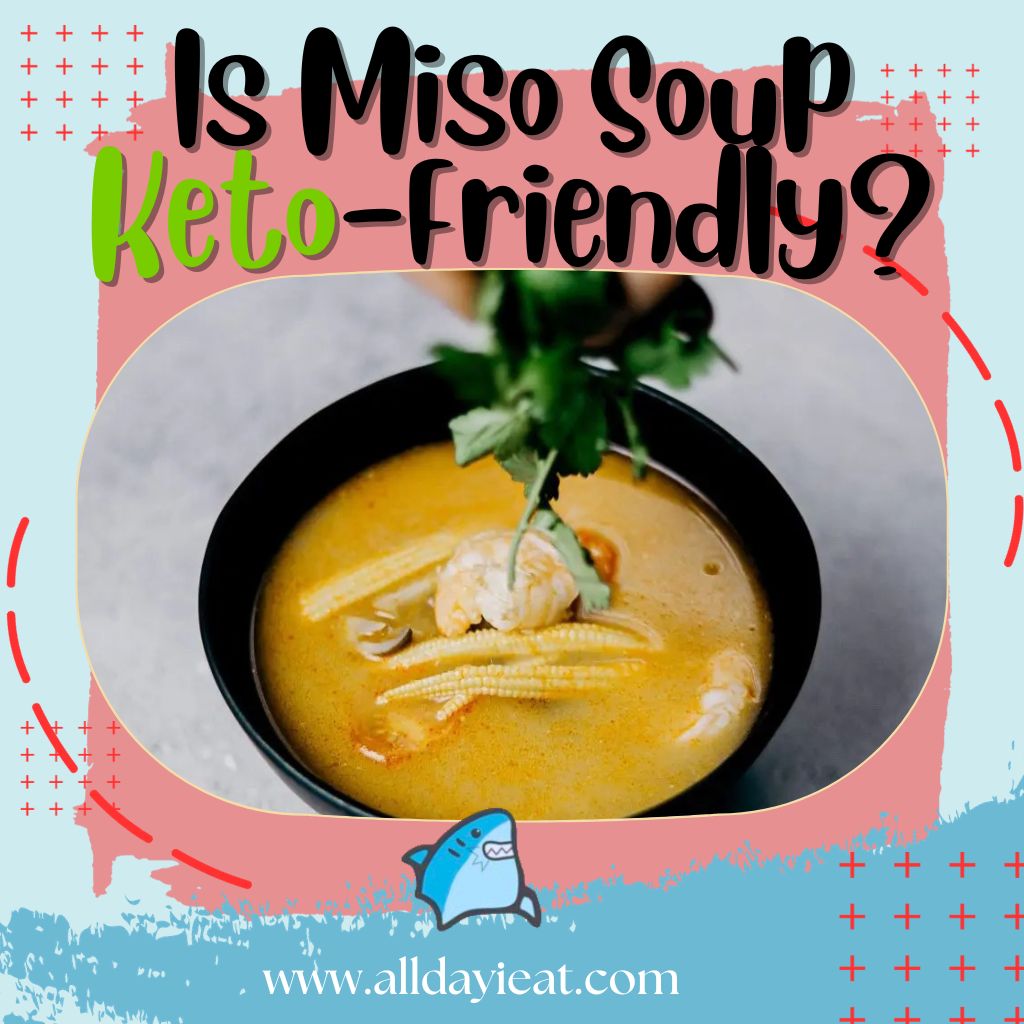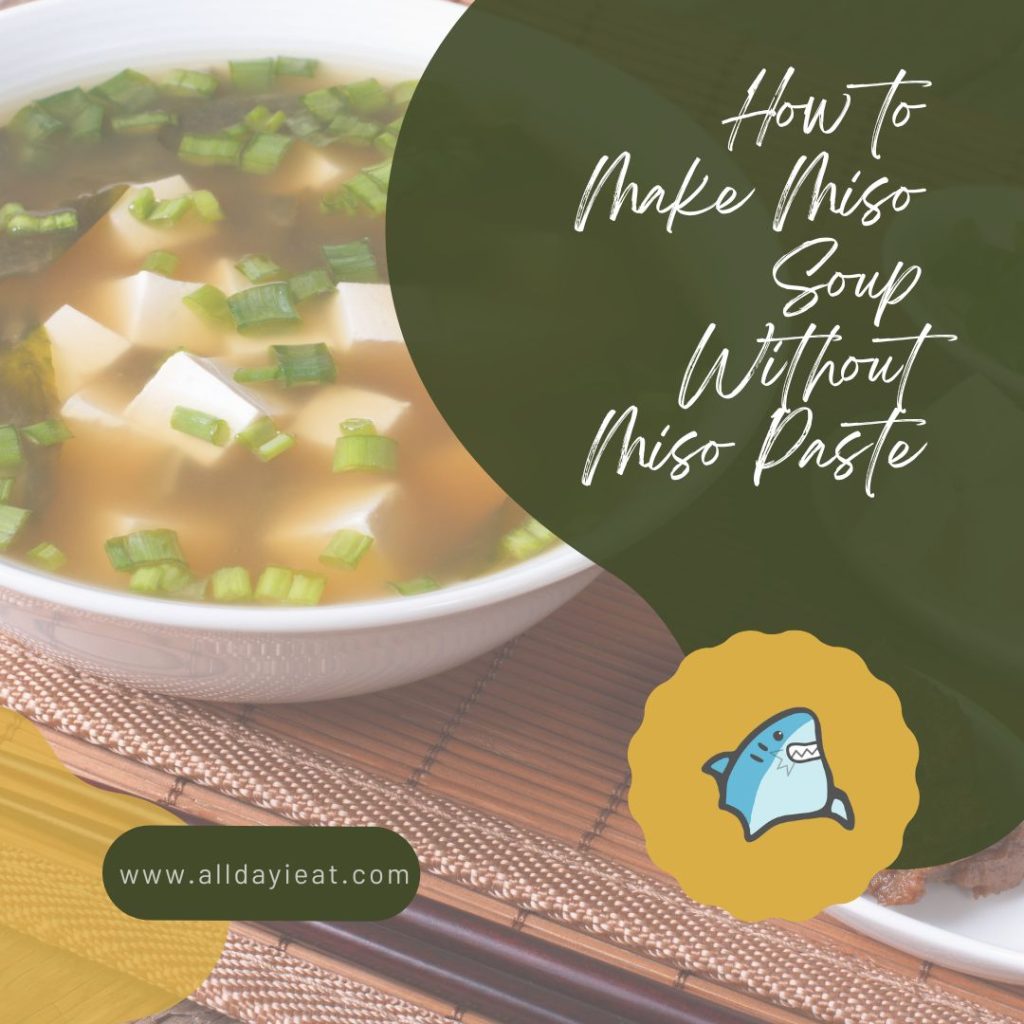Are you wondering if miso soup is vegan? Well, we’ve got the answers for you! In this article, we will explore the origins of miso soup, its key ingredients, and its nutritional value.
We will also delve into traditional variations of miso soup and provide you with vegan alternatives. So, whether you’re following a plant-based diet or are just curious about the vegan options out there, let’s dive in and discover if miso soup can be enjoyed without any animal products.
Key Takeaways
- Miso soup is a traditional Japanese dish made from fermented soybeans, rice or barley, and salt.
- Miso soup is a staple in Japanese cuisine and holds cultural significance.
- Miso soup is packed with essential nutrients, protein, probiotics, and antioxidants.
- For those following a vegan diet, there are alternatives such as chickpea miso, barley miso, and brown rice miso that provide similar flavors and health benefits.
The Origin of Miso Soup

Did you know that the origin of miso soup can be traced back to ancient Japan?
Miso soup has a rich history that dates back thousands of years. It is believed to have originated in the 7th century, during the Nara Period.
Miso, the main ingredient of this soup, is made from fermented soybeans, rice or barley, and salt. The cultural significance of miso soup runs deep in Japanese cuisine.
It is often served as a staple dish for breakfast, lunch, or dinner. Miso soup is not only delicious but also nutritious, providing essential vitamins and minerals.
Its umami flavor and warm broth make it a comforting dish that brings people together around the table.
Key Ingredients in Miso Soup

One of the key ingredients in miso soup is tofu, which adds a creamy texture and protein to the dish.
Miso soup is not only delicious but also offers several health benefits. It is rich in probiotics, which promote a healthy gut and support digestion. The fermentation process used to make miso enhances its nutritional profile by increasing the bioavailability of nutrients such as vitamins and minerals. Additionally, miso contains antioxidants that help combat free radicals and reduce inflammation in the body.
There are different types of miso soup available, including white miso, red miso, and mixed miso. Each type has its distinct flavor profile and levels of saltiness.
Incorporating miso soup into your diet can be a great way to boost your overall health while enjoying a comforting and flavorful dish.
Nutritional Value of Miso Soup

When incorporating miso soup into your diet, you’ll be pleased to know that it is packed with essential nutrients. It is traditionally made from fermented soybeans, which are rich in protein and provide all the essential amino acids your body needs. Additionally, miso contains beneficial bacteria known as probiotics, which can promote healthy digestion and boost your immune system.
Consuming miso soup regularly has been associated with several health benefits. It may help lower blood pressure and reduce the risk of heart disease due to its high potassium content. The antioxidants found in miso can also protect against certain types of cancer.
However, it’s important to note that miso soup should be consumed in moderation because it is high in sodium. Excessive sodium intake can increase the risk of high blood pressure and other cardiovascular issues. If you have any existing health conditions or concerns about sodium intake, it’s best to consult with a healthcare professional before incorporating miso soup into your diet.
Traditional Variations of Miso Soup

A popular variation of miso soup is made with tofu, which adds a creamy texture and an extra source of protein. When it comes to regional miso variations, you’ll find that each region in Japan has its unique twist on this classic dish.
Here are some interesting variations to try:
- Kansai-style: This version includes dashi broth, tofu, green onions, and sometimes mushrooms.
- Nagoya-style: Known as ‘Hatchomiso,’ it features a darker and heartier miso paste made from soybeans and barley.
- Hiroshima-style: This variation adds stir-fried vegetables like cabbage and bean sprouts for a more substantial meal.
- Hokkaido-style: In the northernmost region of Japan, they add corn, potatoes, and butter for a comforting twist.
In addition to its delicious taste, miso soup also offers various health benefits. It is rich in probiotics that promote gut health and digestion. Miso is also packed with vitamins B12 and K2 which support brain function and bone health respectively.
Vegan Alternatives to Miso Soup

If you’re following a plant-based diet, there are several alternatives to traditional miso soup that can still satisfy your taste buds. Vegan miso alternatives offer a variety of flavors and health benefits.
One popular substitute is chickpea miso, made from fermented chickpeas instead of soybeans. This option provides the same umami flavor and probiotic benefits as traditional miso while being completely vegan-friendly.
Another alternative is barley miso, which has a slightly sweeter taste and is often used in soups and stews. Barley miso is also rich in nutrients like vitamins B1, B2, and folic acid.
For those looking for a gluten-free option, there’s brown rice miso, which contains beneficial enzymes and antioxidants.
Conclusion
In conclusion, miso soup can be a vegan-friendly option depending on the ingredients used. Traditional miso soup typically contains soybean paste, which is plant-based. However, some variations may include non-vegan additions like bonito flakes or dashi broth made from fish.
If you are following a vegan diet, it’s important to check the ingredients or ask for a vegan version when ordering miso soup. With its rich flavor and nutritional benefits, miso soup can be enjoyed by vegans with minor adjustments to suit their dietary preferences.
 Hikari Organic Instant Miso soup with Malted rice KOJI
Hikari Organic Instant Miso soup with Malted rice KOJI Made with organic ingredients and featuring malted rice koji, this soup brings a unique twist to your miso experience.
It boasts rich, authentic miso flavors that capture the essence of Japanese cuisine.
- Organic ingredients ensure a natural and environmentally conscious choice
- The inclusion of malted rice koji enhances the depth and complexity of the miso flavor
- Real ingredients like tofu and seaweed provide an authentic and satisfying miso soup experience.
- The organic label may come with a slightly higher price point compared to non-organic miso soup options.







Konnichiwa! (Hello!) I'm Pat Tokuyama, a Japanese tofu cookbook author, who travels for music, food, and adventure. If you like Japanese tea, checkout some of the newestorganic japanese tea, matcha bowls and noren and more!
** Curious about the Plant Based Japanese Cooking Club? ** Learn more here!